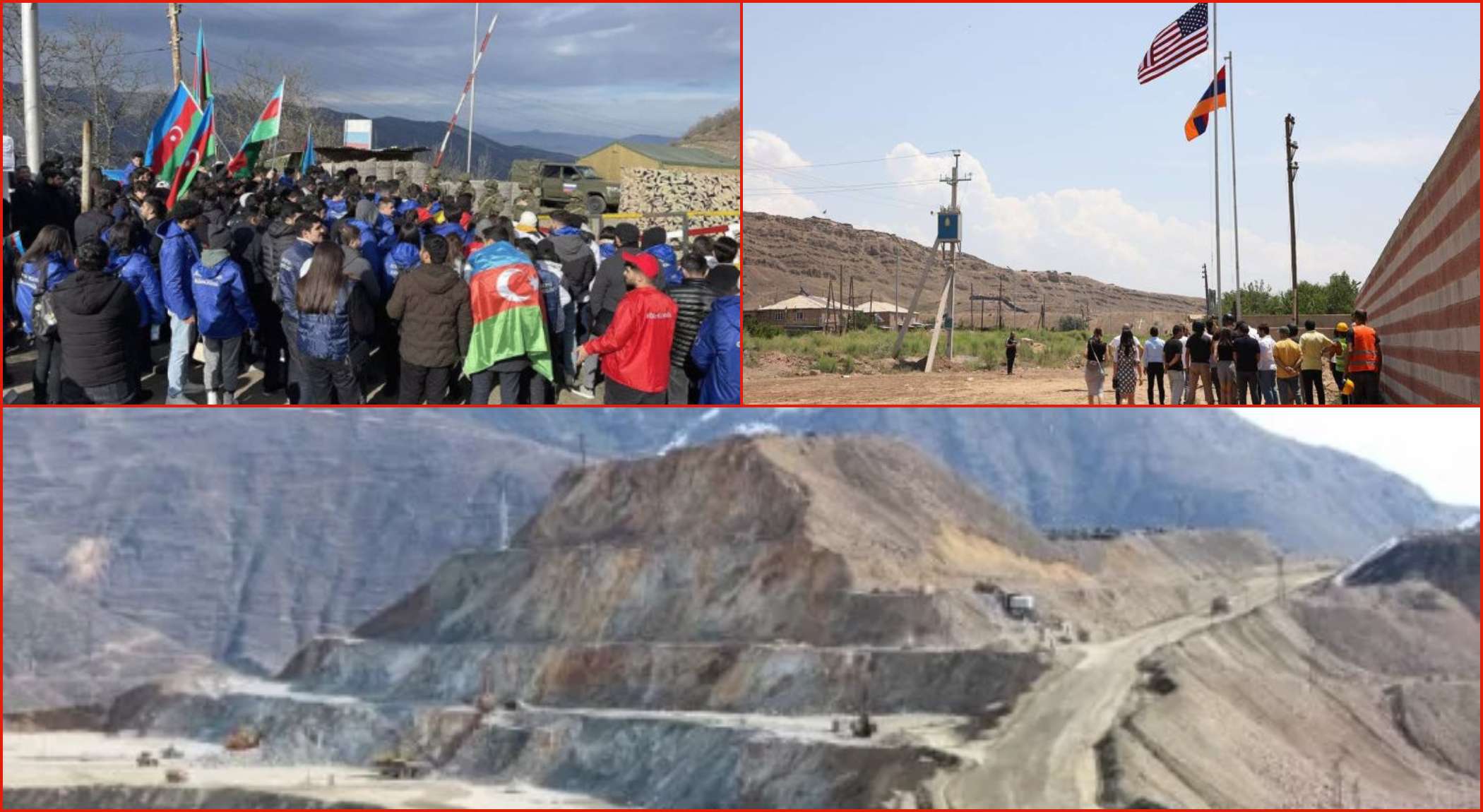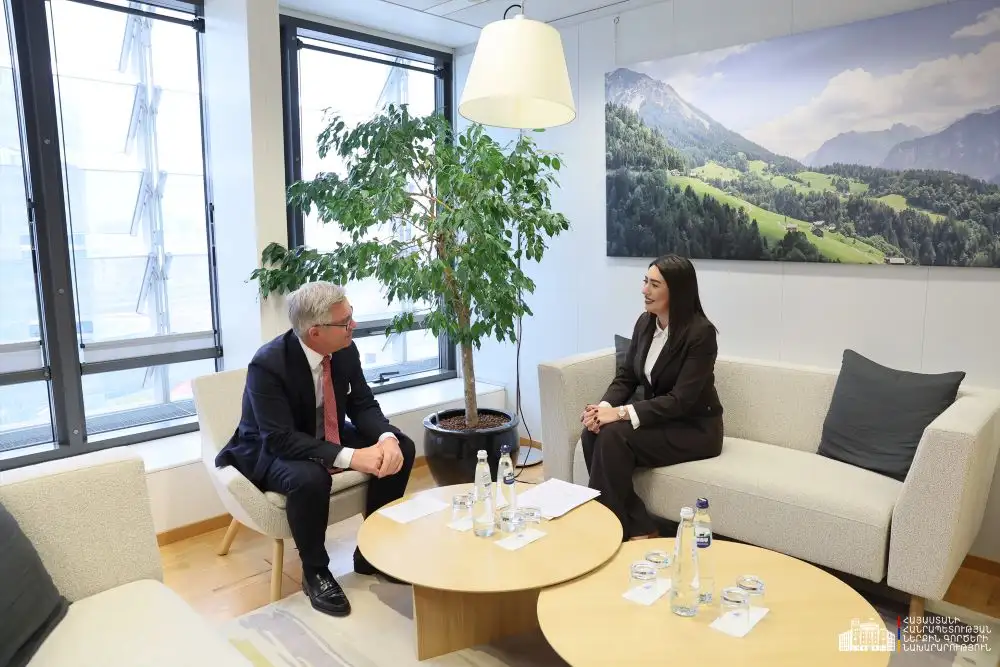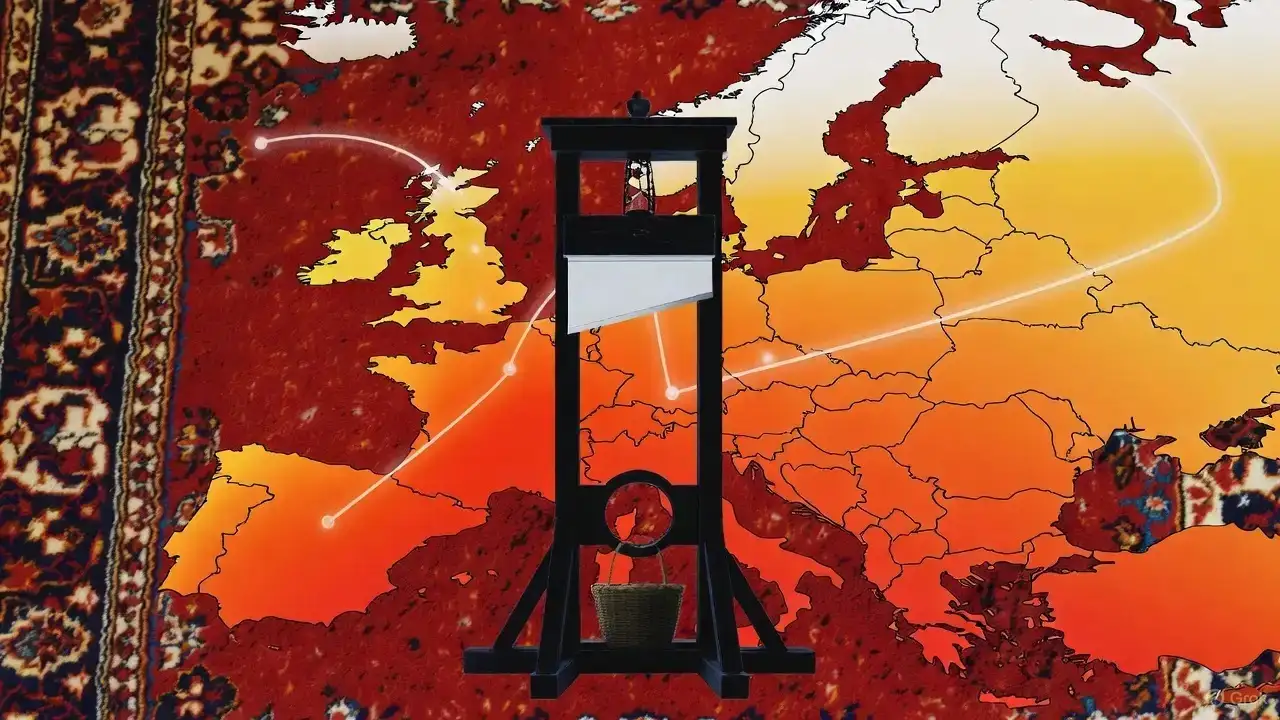Azerbaijan is trying to put pressure on Armenia on the diplomatic front and the ground and waging war on environmental protection, targeting mines and the mining sector in general. Radar Armenia presents the recent active demarche against Armenia in the field of environmental protection of Azerbaijan. Azerbaijan, which closed the Lachin corridor for "environmental" reasons about 7 months ago, continues working in this direction. The Azerbaijani side is making environmental accusations against Armenia at the official level through environmentalists and NGOs. It should be noted that this campaign is directed not only by information propaganda but also by shooting at mines.
The latest incident on the environmental front happened on Thursday, when the Azerbaijani media reported that the Azerbaijani government demanded Armenia stop the construction of a large metallurgical plant in Yeraskh. According to Azerbaijani claims, this was stated in the letter of Mukhtar Babaev, Minister of Nature Protection and Natural Resources of Azerbaijan, addressed to the Minister of Environment of Armenia.
Although shortly after, the Armenian side denied this statement, noting that the Minister of the Environment of the Republic of Azerbaijan did not receive any official letter from the Azerbaijani government regarding the suspension of the construction of a large metal smelting plant, we must note that the Azerbaijani side continues to expand its rhetoric to create problems for Armenia in this area.
In this context, it is worth reminding that in 2023 In July, Azerbaijani "environmentalists" sent an open letter to RA Prime Minister Nikol Pashinyan about violating environmental stability in the South Caucasus region due to the exploitation of mining enterprises. And in June, Azerbaijan's official agency dealing with ecological issues stated Armenia's violation of the Espoo Convention in connection with constructing a metallurgical plant in the village of Yeraskh on the border with Azerbaijan. As usual, the Azerbaijani side distorted the facts in the justification of the statement, presenting as if their claims testify to the violation of the convention's provisions.
Through its environmentalists, Azerbaijan is trying to prevent the construction of a metallurgical plant in Yeraskh. Responding to the "cries" of Azerbaijani environmentalists, the Ministry of Environment claimed that Azerbaijan's statement regarding the negative transboundary impact on the environment as a result of the operation of the plant is groundless and does not correspond to reality in any way, then added that the only real purpose of these environmental false alarms is to hinder the economic development of the Republic of Armenia.
During the government session, RA Prime Minister Nikol Pashinyan, responding to the accusations of Azerbaijani "environmentalists," noted that Azerbaijan attributes mines to Armenia that do not exist, raises circumstances that are fictitious, points to decisions that are about something completely different, mentions conventions that are not relevant.
Non-governmental organizations of Armenia also issued a counter-statement regarding the position of Azerbaijani "environmentalists," once again stating that Armenia adheres to the principles of open government (OGP) and the requirements of the Aarhus Convention, and the required information on environmental impact assessment is published on official websites, where the main technical parameters of production are indicated, and the environmental impact assessment is given.
As for the Yeraskh factory, the documents regarding its construction are also published on the public open platform.
According to Vardan Jhanyan, President of the Union of Miners and Metallurgists of Armenia, First Deputy General Director of "Zangezur Copper-Molybdenum Combine" CJSC, Azerbaijan is trying to limit the development of Armenia's industry, including in the field of mining. According to him, it is necessary to be very vigilant because if the Azerbaijani side succeeds and causes damage to the mining sector in Armenia, it will continue its move towards the Metsamor nuclear power plant, the fish farms of the Ararat valley, and all the areas related to environmental protection.
Official and unofficial representatives of Azerbaijan, however, do not seem to remember that in 2006 all the coastal countries of the Caspian Sea, including Azerbaijan, ratified the "Framework Convention for the Protection of the Marine Environment of the Caspian Sea" (Tehran Convention). The 21.3 thousand-hectare area of the Absheron Peninsula, rich in oil and gas reserves on the west coast of the Caspian Sea, is heavily polluted with oil and oil products. Long-term oil spills in this area have caused severe anthropogenic environmental and natural landscape changes (TACIS 2009). It is a well-known fact that Azerbaijan's oil and gas industry poses a significant threat to the Caspian Sea basin for the countries: the Islamic Republic of Iran, the Republic of Kazakhstan, the Russian Federation, Turkmenistan, and Azerbaijan itself.
Experts state that Azerbaijan has been using "environmental arguments" in its struggle against Armenia and Artsakh since 1990, and that topic is understandable for the West. According to them, Armenia should also speak a language the West can understand.
Hayk Magoyan




















